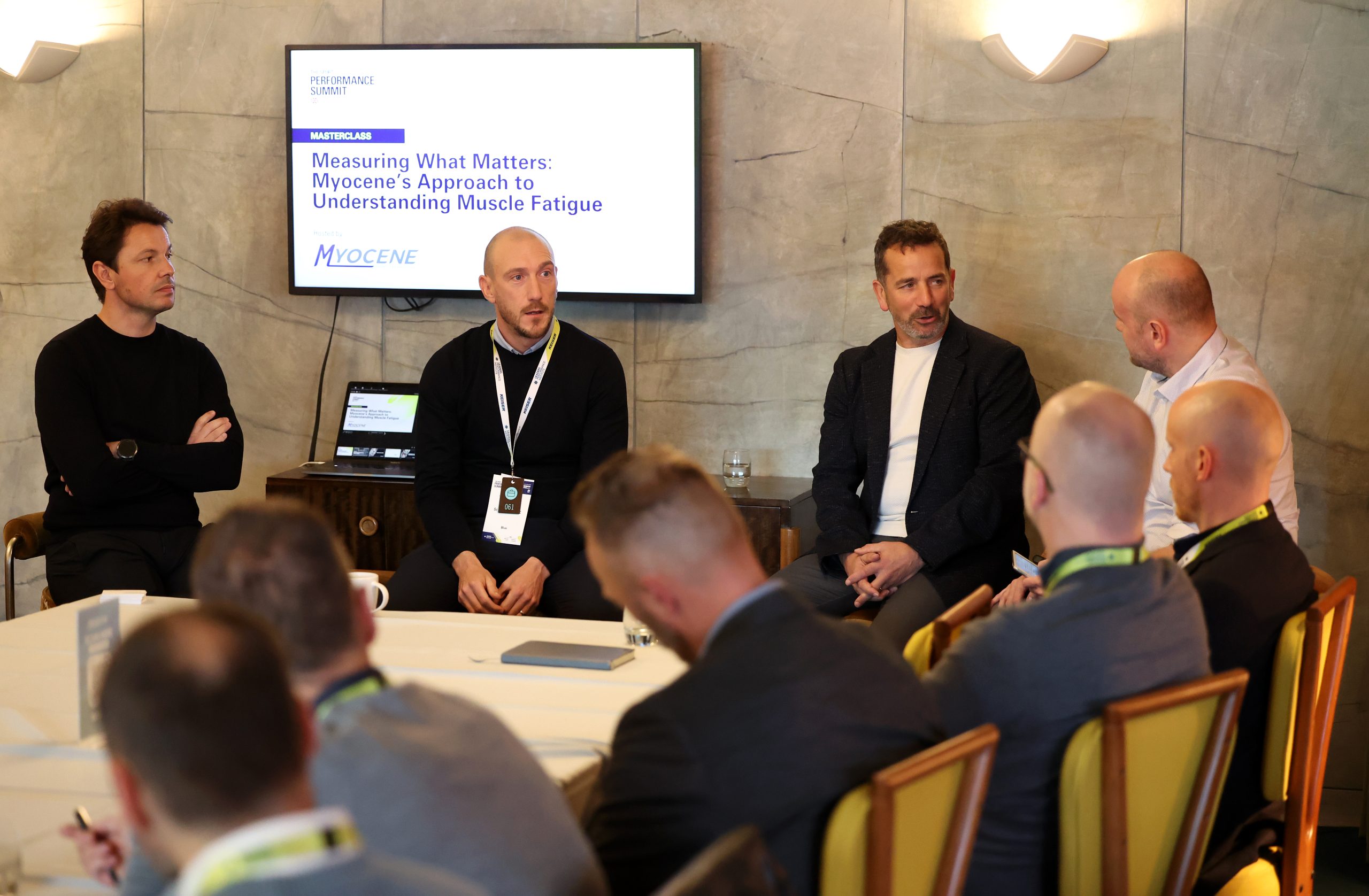On the 13th of November, Myocene held a lunchtime masterclass at the Leaders in Sport London Performance Summit hosted at the Kia Oval.
Key Takeaways included:
- Fatigue management is not under control yet – what should we look at?
- How fatigue data can help sports scientists and medical teams
- How should we communicate with already tech engaged players
The masterclass session was led by Myocene’s Raphael Ravet, alongside Dave Carolan from Derby County FC and Thomas Barnden from Southampton Football Club. The speakers bridged the gap between science and sport, offering valuable perspectives on maximising performance, mitigating injury risks, and navigating the ever-evolving interface between technology, data, and human performance.
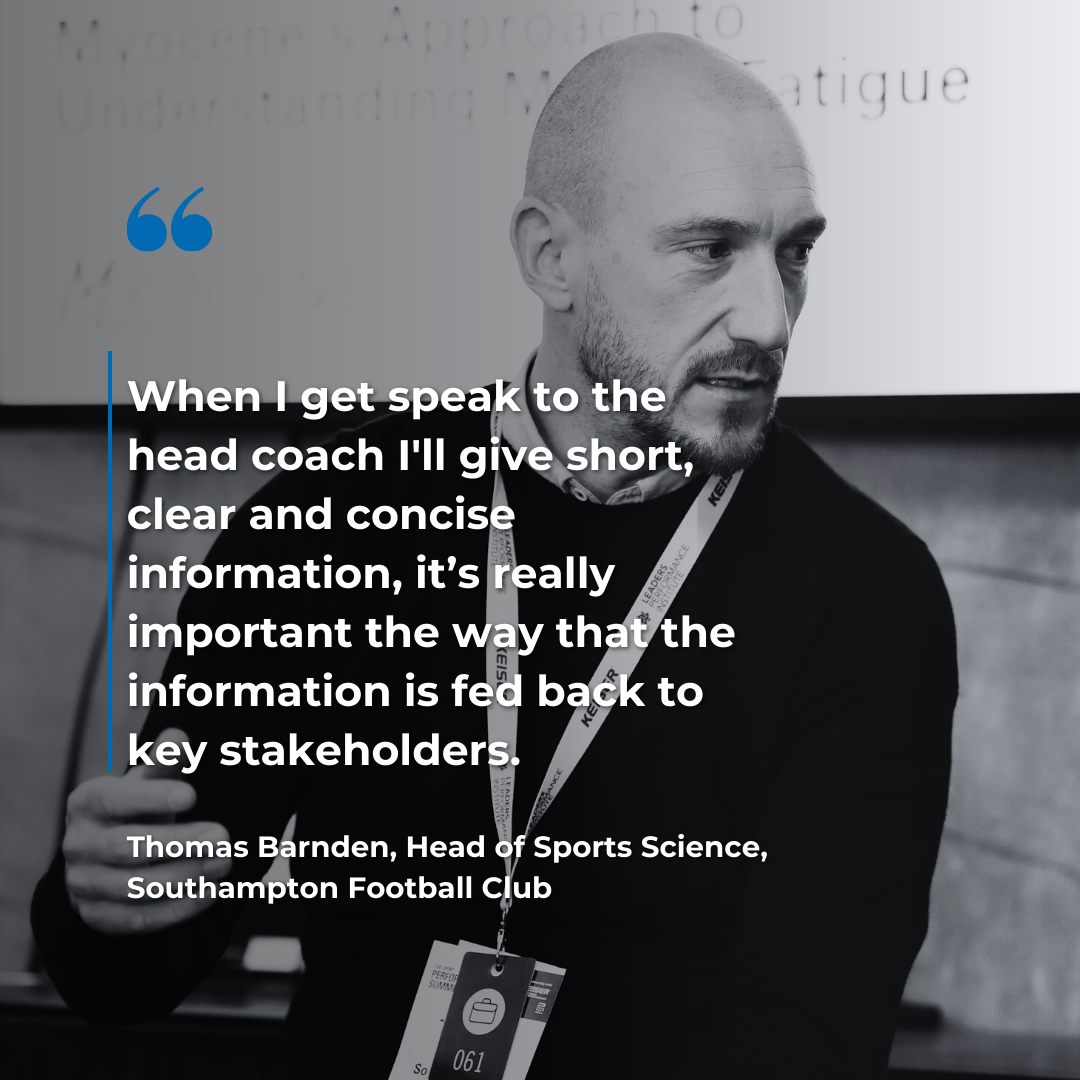
Challenges that practitioners are facing
With the advent of wearable technology and integrated athlete tracking tools like GPS, external load measurement is essentially under control. GPS revolutionised collective sport by providing sport scientists and S&C coaches with more data to optimise training load. Back then, the same was true with the release of portable heart rate monitoring devices, which make it possible to designate training zones and track training intensity.
Examining the physiological responses to this external load, however, suggests that there isn’t agreement on a particular technique or piece of equipment to effectively quantify the internal load. One useful tool is the subjective questionnaire. Tests of physical performance are also frequently employed. Both approaches, however, could be impacted by motivation or emotion, and as a result, they don’t accurately capture the complexities of the internal load impact.
There is a pressing need for more accurate, specific and objective methods to individually measure physiological adaptation to training and competing. Current challenges in elite sports stem from several factors including limited time, resources, availability, reliability and useability of existing technologies. These constraints often hinder the ability of practitioners and athletes to fully understand and optimise individual responses, emphasizing the critical gap that innovative solutions aim to address. One important factor in competitive sports is fatigue. Fatigue affects the performance and increases the risk of overtraining and injuries. Therefore fatigue is a key parameter to get under control and in particular during congested periods.
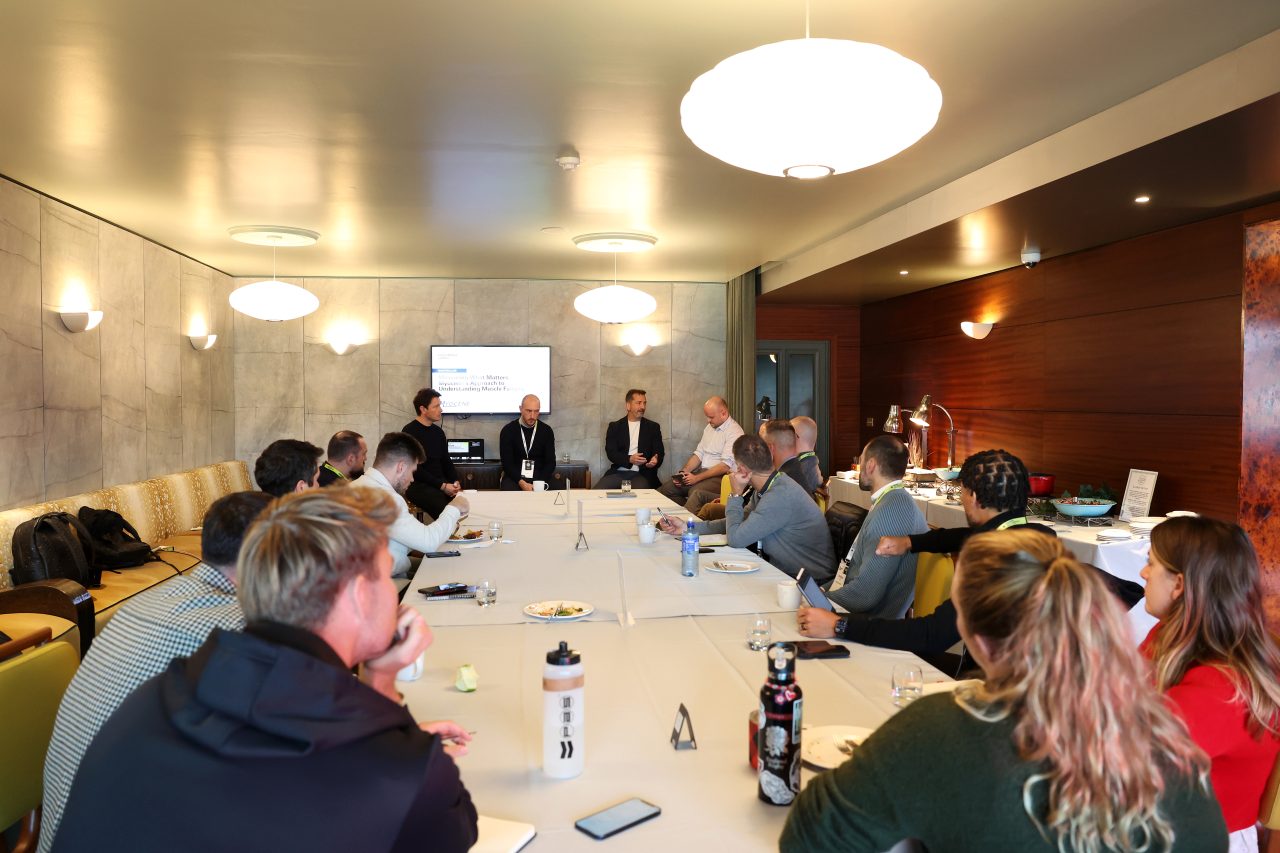
Key Themes Explored
The session tackled several critical challenges facing elite sports teams today:
- Maximising Athletic Performance: A key discussion point was the need to fine-tune training regimens to ensure peak performance. Are we as performance practitioners using all the data available, are we being efficient with our time. Are the players engaged and understanding why we do the protocols? A topic that became clear from everyone’s experience in the room was that players are concerned about optimizing muscle readiness and recovery by using consumer product training activities trackers. Which means that athletes are going above and beyond to benefit from the latest technologies to improve their performance.
- Injury Risk Mitigation: Preventing injuries in high-stakes environments is crucial. The masterclass explored how fatigue data can help sports scientists and medical teams identify potential vulnerabilities in players, enabling proactive interventions. “I think with a lot of the methodologies We’ve probably been there long enough, now that we’re probably seriously questioning whether we should continue.” remarked Dave Carolan as he spoke on his experience over the last 20 years.
- Data and Technology in Fatigue Measurement: Raphael presented Myocene as a pivotal tool for teams seeking to blend technological innovation with actionable insights. The discussion highlighted the importance of translating raw data into meaningful strategies that support player health and availability.
- Cross-Departmental Philosophies: This segment examined the dynamics between head coaches and performance/medical teams. Balancing how to get your coach to listen regarding player availability and use, while remaining committed to the athlete’s welfare, emerged as a key area requiring alignment and collaboration. “When I get to speak to the head coach I’ll give short, clear and concise information, it’s really important the way that the information is fed back to key stakeholders.” said Thomas Barnden as he gave advice to the room. It became apparent that more teams are seeing departments professionalizing and expertise is increasing. The outcome being that coaches can now rely on highly professional practitioners to expertly advise them on players recovery and readiness.
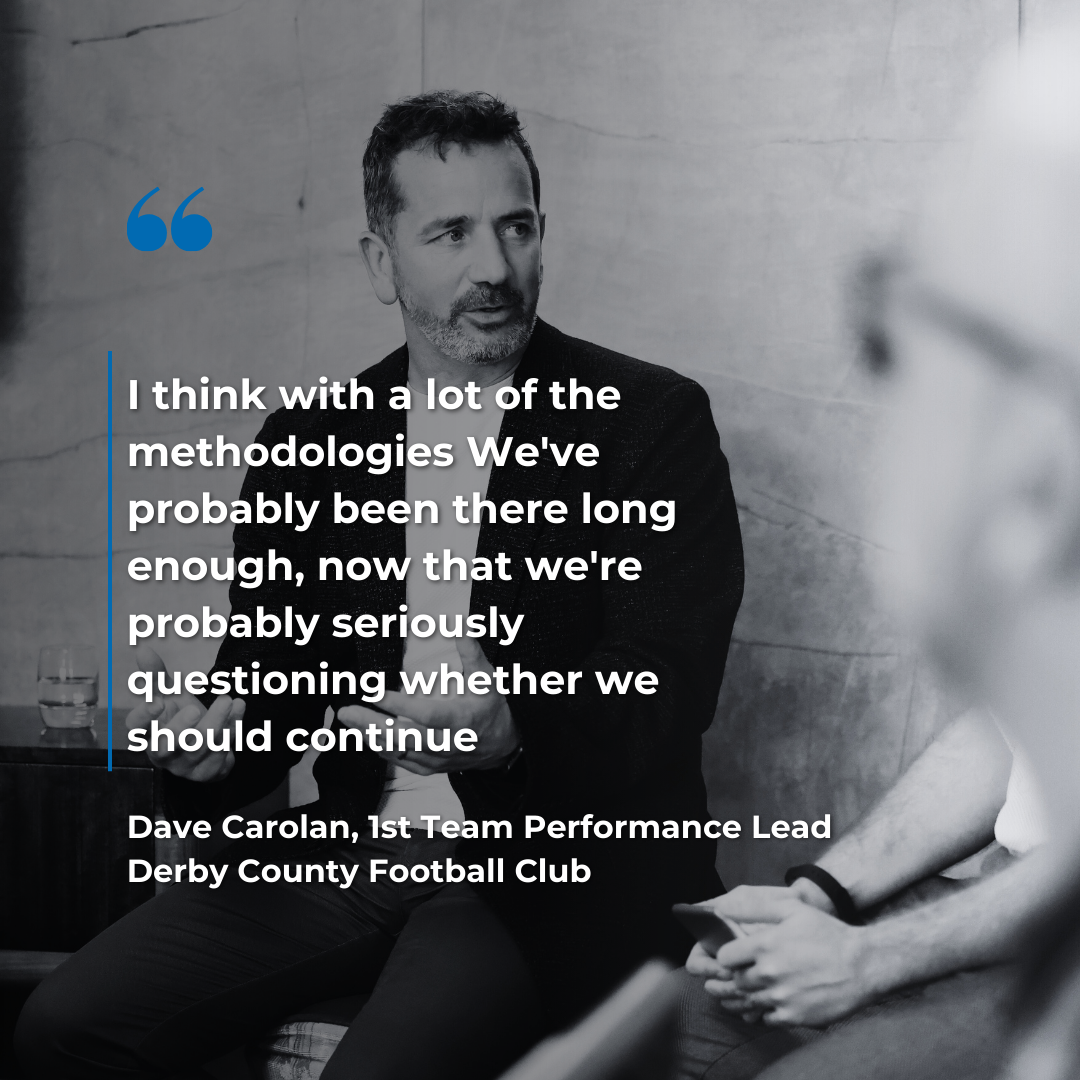
From the discussion in the room and the questions posed it is clear that fatigue management is not under control yet. There is room for improvement to increase performance and mitigate the risk of injuries. Elite athletes and club squads continue to suffer from high injury rates and overtraining syndrome. With more games and expanded tournaments, teams and athletes are under increasing pressure and it’s only going to get worse. But the implementation of new technologies could bring athlete performance to another level and help to mitigate injuries. Evidence based technology to perfectly quantify fatigue which have been adapted to the challenging environment of elite teams like Myocene are now available for player benefit.
Live Demo of Myocene
The session culminated in a live demonstration of the Myocene device, delivered by Raphael. Attendees witnessed firsthand how the device measures muscle fatigue with precision, providing real-time data that can inform decisions around training loads, recovery protocols, and player readiness. The demo brought the theoretical discussions to life, showcasing Myocene’s potential as a transformative tool for elite sports teams.
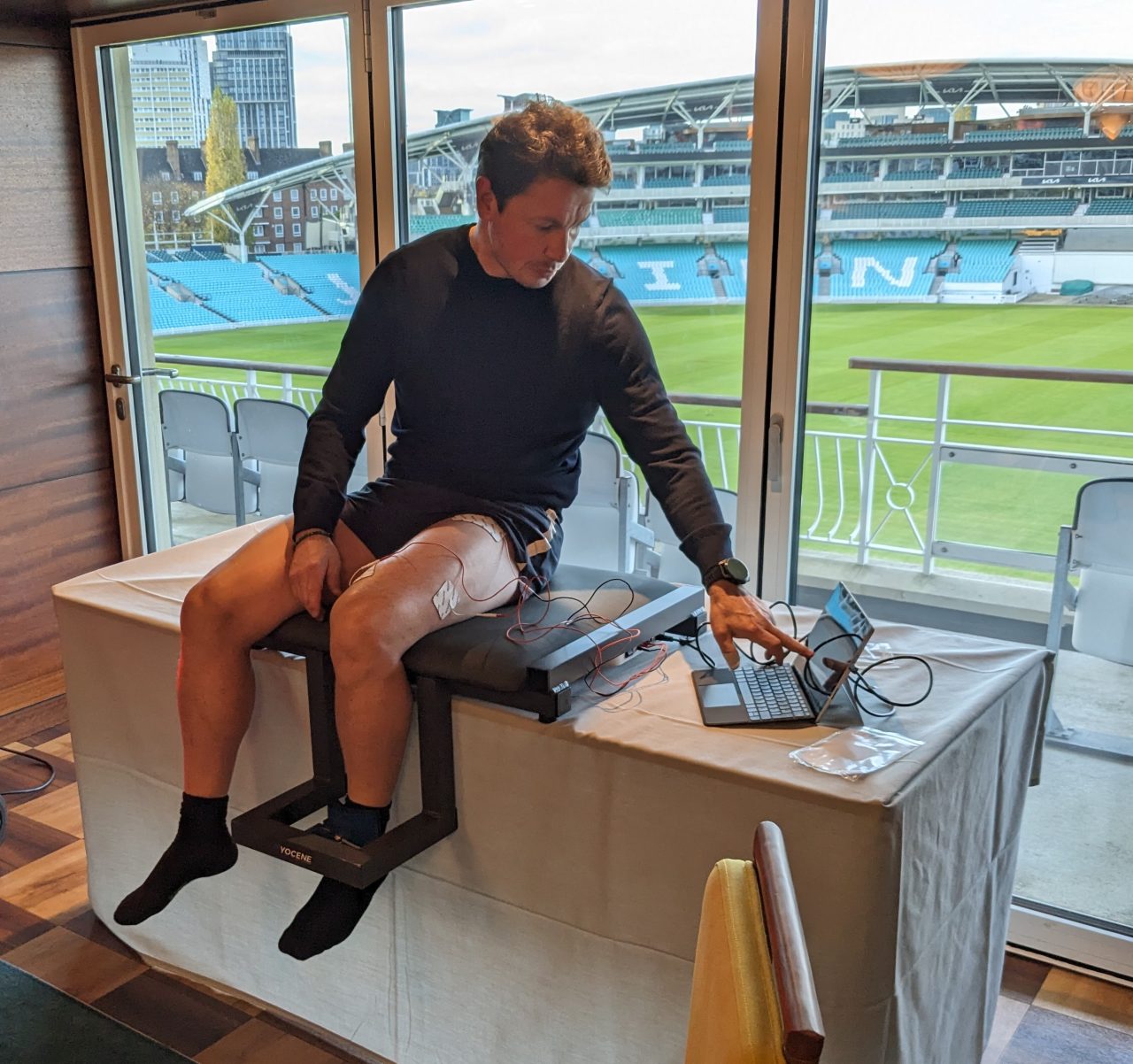
The Myocene masterclass at the Leaders in Sport London Performance Summit was a great success, leaving attendees informed about the future of fatigue management in elite athletes. By combining a close up look at Myocene with expert insights from Derby County FC and Southampton Football Club, the session underscored the critical role that objective data and interdisciplinary collaboration play in advancing sports performance.
Myocene continues to position itself as an indispensable resource for teams striving to achieve the perfect balance between performance, recovery, and injury prevention in the fast-paced world of elite sports.


